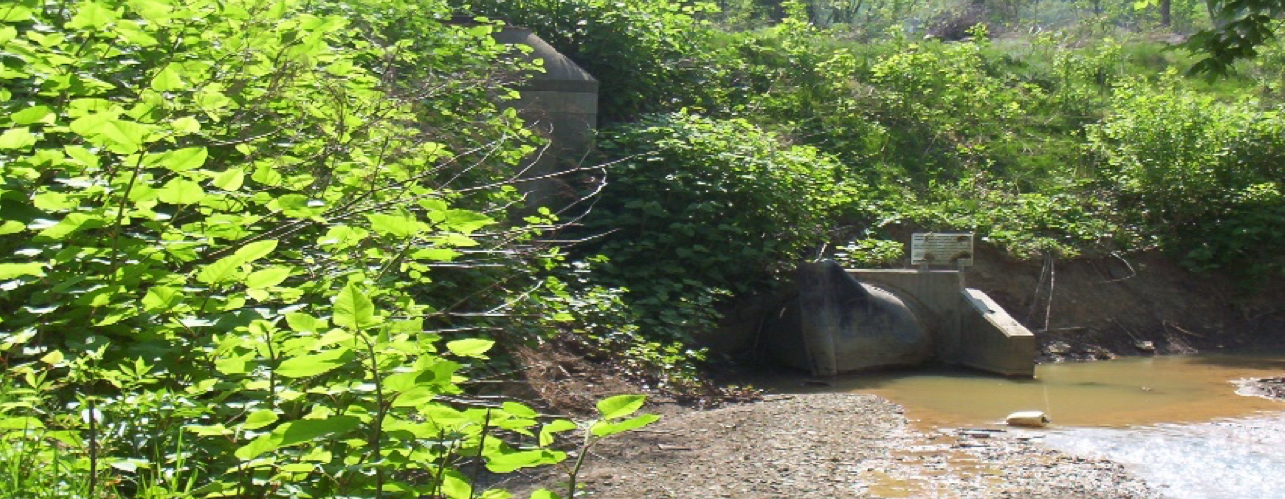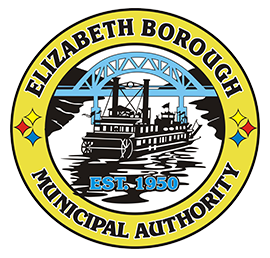
The Problem
Everything you wash down the sink, flush down the toilet, and drop or wash into the sewer becomes a part of the sewage water that is treated before re-release into the environment. In Elizabeth Borough, all these things go underground into the combined sewer system pipes that carry the water to the Elizabeth Borough Municipal Authority Wastewater Treatment Plant.
The combined sewer system in Elizabeth Borough was designed to carry both storm and rain water, as well as wastewater that comes from bathrooms, kitchens, washrooms, and basement drains, to the Elizabeth Borough Municipal Authority Wastewater Treatment Plant.
During storms or times when rainfall or snow melt fills the sewers, the combined sewer systems can overflow. Too much water may be entering the pipes, or the treatment plant may not be large enough to take in such a large volume of water and sewage. When this happens, the pipes leading to the treatment plant overflows, and this is known as a Combined Sewer Overflow or CSO.
The CSO from the pipes is discharged directly into rivers and creeks. Since the overflow is from a combined sewer system, more than just storm water is released into the rivers and streams during CSO events. All the sewage that collects in the underground pipes with the rain water or snow melt. Raw sewage like untreated human waste and industrial waste from companies and businesses, as well as any trash that was dropped into drains or washed into the sewers, is also discharged directly into waterways.
As you can imagine, this causes pressing environmental problems. Since the rivers are the source of drinking water for most communities in the Monongahela Valley, including Elizabeth Borough, it is imperative that we keep them as clean as possible.
Because CSO’s can happen at almost any time during the year when there are rainstorms or snow melts, they are a persistent problem for water pollution and public health. The residents of Elizabeth Borough are part of approximately 43 million people in Allegheny County that rely on combined sewer systems and deal with the challenge of managing the CSO’s.
In 1994, the CSO Control Policy was announced by the Environmental Protection Agency (EPA). The intent of the policy is to:
- Ensure that if CSO’s occur, they are only as a result of wet weather
- Minimize the impact of CSO’s on water quality, aquatic biota, and human heath from CSO’s.
- Develop strategies to control, reduce, or eliminate CSOs
The Elizabeth Borough Municipal Authority has taken different steps to reduce and eliminate CSOs that are listed below:
- Regular maintenance and repair of the sewer system and CSO outfalls
- Maximum use of the collection for storage
- Maximization of flow to the sewage treatment plant for proper treatment
- Elimination of CSO event during dry weather
- Control of solids and floatable materials in CSO’s with street sweeping
- Separation of the storm water from the sanitary flow.
- Posting of the CSO outfalls
What you can do
Combined sewer overflows are a challenge for all of us, but there are ways that all of us can greatly reduce the impacts of CSOs.
Everyone must be aware that everything you flush down the toilet, rinse in the sink or leave trash lay in the streets ends up in our water system.
There are very simple things that you can make as part of your daily routine that can help make a difference. Do not rinse paints or chemicals down the sink or any other pipes in your home. If these items can be recycled or reused, make every effort to do so. Pick up litter on your street not only will keep it out our waterways but it will also beautify your neighborhood.
If you live in an older home that have driveway and roof drains that are tied into your sewer lateral, look at redirecting these to have them empty onto your lawn, to help keep from flooding the sewer system during storms and heavy rainfall events.
Remember it is up to all of us to protect our waterways so that we can ensure they will be around for future generations to come!
